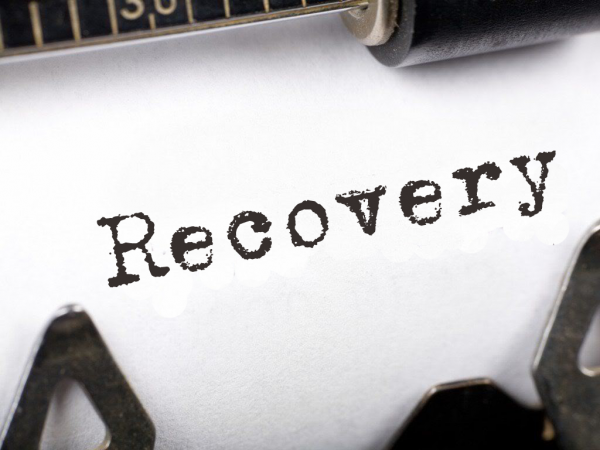The Methods Used in Opiate Addiction Treatment
There are actually a lot of methods used in opiate addiction treatment; each program differs slightly from others. Attending a professional program means that you will undergo a thorough intake that will gather the information needed to design a specialized treatment plan tailored to your situation. This means that each person’s plan will also cause treatment approaches to differ. However, there are some components that are pretty consistently utilized in all opiate substance abuse treatment centers.

Detoxification
The first stage of any opiate addiction treatment plan is detoxification, the use of interventions to help the body rid itself of drugs and alcohol. Medications like methadone and clonidine are typically part of this process. In fact, treatment experts warn that a detox from opiates that does not include medication is unusually cruel for the patient population.
Behavioral Counseling
According to the National Institute on Drug Abuse, behavioral therapies are employed to help patients:
- Increase healthy life skills
- Alter their behaviors and attitudes towards drug use
- Persevere with other forms of treatment, like medication
This is achieved through individual, family, and group counseling.
Medication-Assisted Treatment
Medications are typically used to control withdrawal symptoms, treat co-occurring conditions, and prevent relapse. Common medications used in opiate substance abuse treatment are:
- Methadone
- Buprenorphine
- Naltrexone
Evaluation and Treatment for Co-Occurring Disorders
Drug addiction is more common among people with mental disorders than it is among the general population. Because of this opiate addiction treatment programs dedicate time to screening for any disorders that a patient has along with addiction. Each will affect the other, and they must, therefore, be treated simultaneously.
Long-Term Follow-Up
In order to limit chances of relapse, which will occur in roughly 40-60 percent of patients, opiate substance abuse treatment programs offer aftercare. Patients are encouraged to continue attending sessions at the facility or directed to community resources that can best support their continued recovery.
How Will I Benefit from Social Interactions in Opiate Addiction Treatment; The Role Your Peers Will Play in Opiate Substance Abuse Treatment

It’s not uncommon for opiate addicts to become estranged from the people who used to be their closest connections. This often leaves people who are entering opiate substance abuse treatment feeling quite lonely. But, they may also have eroded their previous social skills and empathy to the point that they aren’t truly capable of reaching out and making new connections. This is where peer support comes in.
Both inpatient and outpatient opiate addiction treatment rely on components like group therapy and support group meetings, which bring patients into contact with their peers. These interactions not only benefit participants socially, they also benefit recovery efforts. The following discussion will detail the many advantages of engaging in peer support.
Developing Compassion
When an addict is actively trapped in a cycle of opiate use, they become fixated on their needs and on serving them. This erodes empathy. In opiate substance abuse treatment, connecting with others establishes a relationship that is based on mutual understanding. It gives patients practice listening to others and investing in their needs.
Practicing Social Skills
Whether opiate addiction treatment teaches patients social skills, refreshes them, or a bit of both, it is a time to perfect socialization. But, practicing these skills in your daily life might be too high stakes. If you stumble with co-workers or family and friends with which you maintain a tenuous connection, you may threaten your relationship. Rehab gives you a safe space to exercise your social skills.
Finding Motivation
When opiate substance abuse treatment becomes overwhelming, many people choose to exit treatment early. However, according to the National Institute on Drug Abuse, “Remaining in treatment for an adequate period of time is critical.” When you interact with your peers, you see them face obstacles and conquer them. It reminds you of your inner power, your ability to overcome. That can keep you moving forward in recovery.
Opiate Substance Abuse Treatment and the Loner; Learning to Socialize in Opiate Addiction Treatment
Opiate addicts, in general, have a difficult time interacting with other people in social situations. They simply lack social skills. In some cases, long-term drug use affects their social development, while other people turn to drug use to cope with stunted social skills. This is why opiate addiction treatment includes social skills training.
What Is Social Skills Training?
When addicts participate in social skills training, they learn to:
- Interact with coworkers, friends, and family members
- Interact in social situations
- Refuse drugs and alcohol
This training is closely linked to behavioral therapy, which enables participants to identify negative behaviors and to replace them with desirable ones. Social skills training works best when combines with other cognitive behavioral interventions.
What Interpersonal Skills Are Emphasized in Opiate Substance Abuse Treatment?
Opiate addicts are taught how to relate to others in a variety of social environments. They learn skills like:
- Assertiveness, how to avoid being taken advantage of
- Understanding body language and other nonverbal cues
- Empathy
- Listening as well as talking, two-way communication
What Do People in Opiate Addiction Treatment Learn About Social Settings?

When opiate addiction treatment comes to a close, participants will continue to encounter situations where alcohol and/or drugs are present. Social skills training aims to prepare participants for this eventuality. They learn skills like eye contact and small talk. This allows them to avoid feelings of social awkwardness that can lead to drug cravings and related relapse.
Often, the key is to avoid social settings where substances are being used, but that isn’t always a possibility. So, participants learn how to avoid drinking or using drugs in these situations. These strategies are termed “refusal skills.” Often, these are taught in opiate substance abuse treatment using role-playing exercises in group therapy. This gives participants concrete experience saying “no.” They can draw from this when confronted with chances to use.